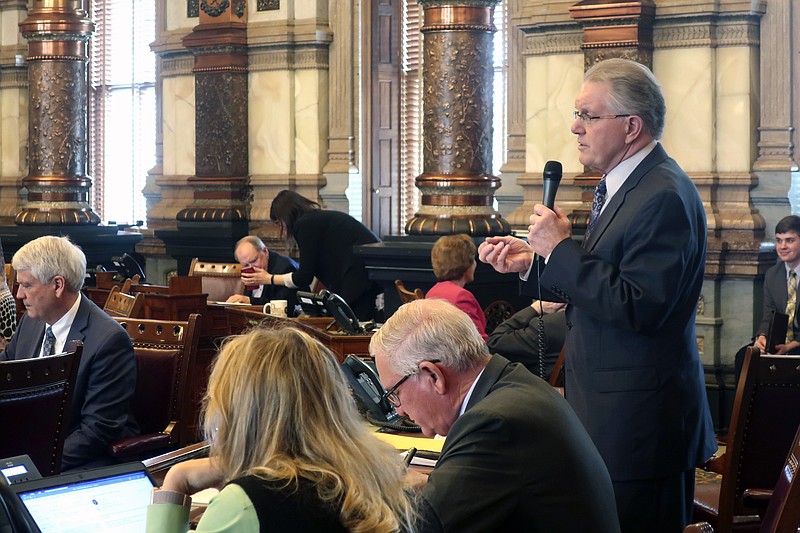TOPEKA, Kan. (AP) - As most of the U.S. raced to get ahead of the coronavirus pandemic, conservative Republican lawmakers in Kansas moved Wednesday to limit their Democratic governor's emergency powers, including the ability to establish quarantine zones if the need arises.
.
Conservatives are angry with Gov. Laura Kelly's order to close all of the state's K-12 school buildings for the rest of the spring semester, viewing it as an overreaction that is stoking panic. And, despite Kelly's past support for gun-rights measures as a legislator, a few of her GOP critics suggested her bold action on the coronavirus so far means she might go after firearms or try to limit their sale, even though she's never mentioned she was considering anything like that.
Before passing its version of an extension of the state of emergency Kelly declared last week, the GOP-dominated Kansas Senate added language from conservatives that would strip her of power governors have had in other emergencies. Among those powers are the authority to say who goes into or out of a disaster area and to restrict movement within an area. She also would lose the governor's broad power to act to "promote and secure the safety and protection of the civilian population."
The House still has to agree to the language, and its members initially were skeptical Wednesday. Still, one GOP leader, Speaker Pro Tem Blaine Finch, an eastern Kansas attorney, told his colleagues when it comes to a pandemic response, "We want the lightest touch possible."
State Sen. Mike Thompson, a Kansas City-area Republican, said Kansas faces a "self-fulfilling, circular prophecy of gloom and doom" over the coronavirus. He and other conservatives fear the economy is being damaged unnecessarily. A former television meteorologist, he said, "There's a reason that you don't put out a tornado warning for Wichita when the tornado's in Topeka."
"It may not be nearly as a bad as we think, so in a lot of ways, you have to be very cautious about how you do things," he said.
Kelly's fellow Democrats warned the new language could limit her ability to set up quarantine zones around communities in crisis. The conservatives' push to restrain Kelly came after governors in other states declared curfews and ordered businesses shut down to combat the spread of the disease.
"There are good reasons for what the governor did," said state Sen. Tom Holland, a Democrat from the state's northeast. "We've all just got to get over it."
The governor has embraced what she calls common-sense gun restrictions, such as a "red flag" law that would allow courts to order the removal of firearms from people who are a danger to themselves or others. But she voted as a state senator for gun rights measures and has not suggested she would need to confiscate guns or stop their sale in an emergency.
Republican state Sen. Dennis Pyle, who is from northeastern Kansas, successfully sought the gun-rights provision. It would prevent Kelly from using the emergency declaration to confiscate guns or ammunition or halt their sale or transportation. Pyle said her actions on coronavirus raise questions about how far she might go.
Democrats were aghast, but most voted for the resolution because without it, the declaration Kelly issued to mobilize state resources more easily would expire on March 27. The vote was 37-2.
The Kansas Senate's resolution would extend the state of emergency until May 1 and allow legislative leaders to extend it every 30 days afterward. The Republican-controlled Kansas House approved a version that would extend the state of emergency into January 2021, and the two chambers will have to resolve their differences.
Democratic state Sen. Mary Ware, of Wichita, said she learned Wednesday a visitor to her Statehouse office last week was being tested for coronavirus.
"This is not something to take as theoretical, certainly not as a hoax," Ware said.

